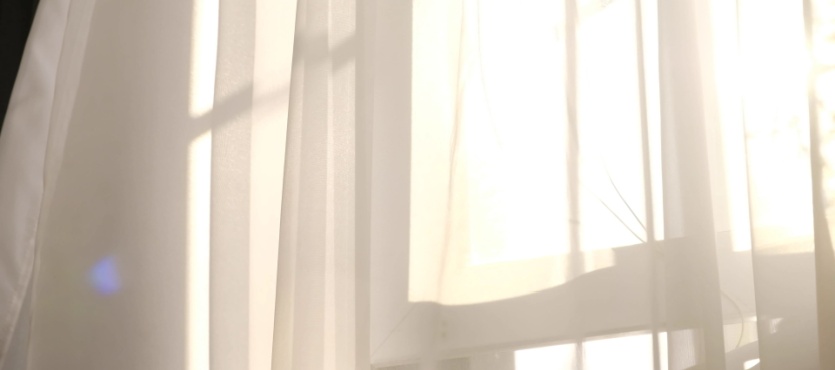Living in Florida means enjoying abundant sunshine almost year-round. This natural light can enhance the beauty of your home, improve your mood, and even reduce the need for artificial lighting. However, the intense Florida sun can also bring unwanted heat, especially during the summer months. Balancing the benefits of natural light with effective heat management is essential for creating a comfortable and energy-efficient home. Here are some tips and tricks for maximizing natural light in your home while minimizing heat and ensuring your windows can withstand storms.
The Benefits of Natural Light
Natural light offers numerous benefits, including improved mood and well-being, energy savings, and enhanced aesthetic appeal. Exposure to natural light can enhance your mood, reduce stress, and even improve sleep patterns. By maximizing natural light, you can reduce your reliance on artificial lighting, thereby lowering your electricity bills. Additionally, natural light can highlight the architectural features of your home and make rooms appear larger and more inviting.
Challenges of Natural Light in Florida
While the benefits of natural light are clear, Florida homeowners face specific challenges. The intense Florida sun can significantly increase indoor temperatures, especially during the summer, leading to higher cooling costs. Prolonged exposure to direct sunlight can fade furniture, flooring, and artwork.
Tips for Maximizing Natural Light
Using light-reflecting colors and surfaces can help distribute natural light more effectively throughout your home. Choosing light-reflecting colors for your walls, such as whites, pastels, and light neutrals, and opting for furniture and decor with glossy or reflective finishes can bounce light around the room.
Installing large windows and glass doors can also maximize the amount of natural light entering your home. Floor-to-ceiling windows can flood your home with light. We recommend they are made of impact-resistant glass to also provide protection during Florida’s hurricane season. Large glass doors leading to patios or decks can also bring in plenty of light, and opting for impact-resistant options is crucial for safety.
Using sheer curtains and blinds allows natural light to filter through while providing some privacy. Sheer curtains can soften the light and reduce glare, and adjustable blinds can control the amount of light entering a room. Reflective blinds can help reduce heat gain.
Optimizing window placement is another effective strategy. In Florida, south-facing windows receive the most sunlight throughout the day. Strategically placing windows on the south side of your home can maximize light while minimizing heat if properly shaded. Skylights can be installed in rooms that don’t have access to exterior walls, and modern skylights can be equipped with shades to control light and heat.
Managing Heat with Natural Light
To enjoy the benefits of natural light without the excessive heat, consider installing Low-E glass windows. Low-emissivity (Low-E) glass windows are coated with a special material that reflects infrared light, keeping heat out while allowing natural light to enter. These windows are particularly effective in reducing cooling costs in hot climates like Florida. Window films can also block up to 99% of harmful UV rays and significantly reduce heat gain, providing an affordable solution for improving the energy efficiency of existing windows without sacrificing natural light.
Applying exterior shading, such as awnings, pergolas, and trellises, can also help. Awnings installed over windows and doors can provide shade and reduce heat gain. Pergolas and trellises can be used to shade windows and outdoor spaces, and planting climbing vines on trellises can offer natural, cooling shade.
Impact-Resistant Windows for Safety and Efficiency
Living in Florida means being prepared for hurricane season, and impact-resistant windows are an essential feature for any Florida home. These windows offer both safety and energy efficiency benefits. They provide protection during storms, as impact-resistant windows are designed to withstand the impact of flying debris. These windows are made with multiple layers of glass and a durable interlayer that holds the glass together even if it breaks, preventing dangerous shards from entering your home and maintaining the integrity of the window.
Impact-resistant windows also provide excellent insulation, helping to keep your home cooler in the summer and warmer in the winter. This can lead to significant savings on your energy bills. Additionally, many impact-resistant windows come with Low-E coatings, further enhancing their energy efficiency by reflecting heat and UV rays.
Additional Tips for Florida Homeowners
To fully enjoy the benefits of natural light in your Florida home, regular maintenance of windows is essential. Ensuring windows are well-maintained and in good condition will maximize light transmission and prevent wear or damage. Automated window treatments that can be programmed to open and close based on the time of day and the position of the sun can help manage heat and maximize natural light without manual intervention. Strategic landscaping with trees and shrubs can provide natural shade, reducing heat gain and creating a cooler outdoor environment.
Maximizing natural light in your Florida home can enhance your living space, improve your well-being, and reduce energy costs. By implementing these tips and tricks, you can enjoy the benefits of natural light while effectively managing heat and ensuring your home is protected during hurricane season. Impact-resistant windows and doors play a crucial role in achieving this balance, offering superior protection against storms and providing energy efficiency to keep your home comfortable year-round.
For more on impact-resistant windows and doors, visit our contact page and let Panorama Windows and Doors help you create a safe, bright, and energy-efficient home.

